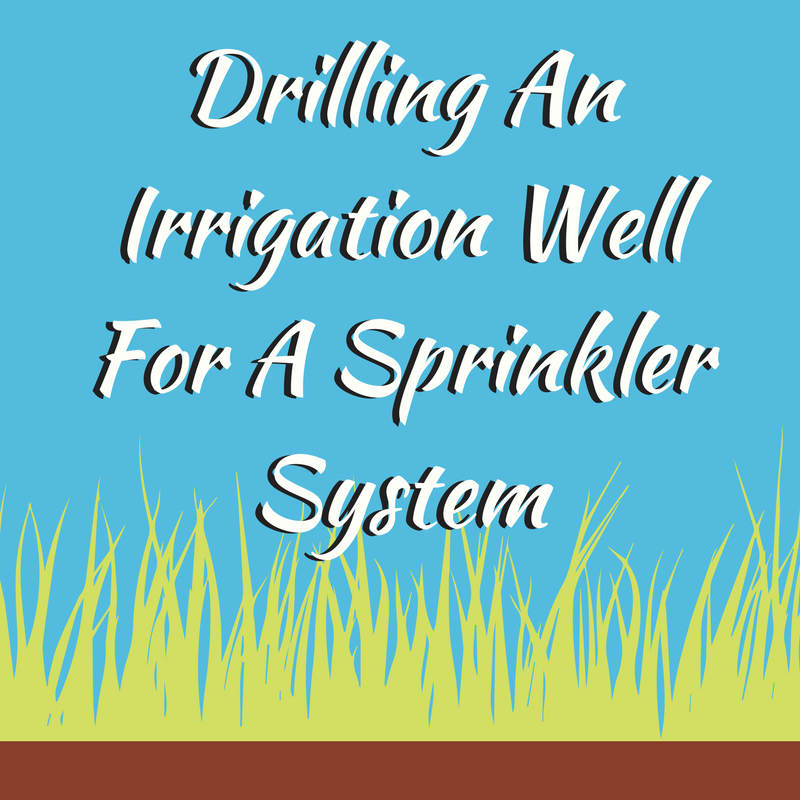Learn the advantages of having an irrigation well drilled for a residential sprinkler system.
You've probably spent years on your landscape design. Choosing and placing the perfect combination of trees, shrubs and ornamental plants, fertilizing and maintaining your lawn, all to create a beautiful environment around your home. You spend a lot of time in the hot summer months watering your lawn and gardens. If you receive your water from a municipal water system, watering the lawn is not only a time commitment during the warm days of summer, it also increases your water bill.
If you're serious about your landscape, here at Skillings and Sons, we recommend that you consider installing an irrigation system. The long term savings you can enjoy with an efficient irrigation well and system will more than pay for the installation costs, keep your landscape healthy, and save you plenty of time to enjoy summertime picnics or a day at the beach!
Irrigation Systems Offer Benefits
In a nutshell, irrigation systems are better for your landscaping. They can help cut your weeding time and specialized drip irrigation systems direct water where it's needed most, to each plants root ball. By watering each plant directly, less water is available to germinate weeds, and that means less weeding. Watering at the root ball also prevents leaf diseases like black spot in roses, which is caused by standing water on the foliage.
Irrigation systems can prevent overwatering which can leach nutrients from your soil. Over watering the soil can compact it, which can promote root diseases and cause distress to your plants. A drip system can prevent all these issues, and because it is fed by a dedicated irrigation well, your only cost is the initial installation. No more outrageous municipal water bills!
Once it's installed, you won't even know it's there! It looks like a small capped pipe about 18-inches above ground. Plus, if you include hose bibs on your home, you can access the well for other activities like washing the car, filling your pool or pressure washing your siding, all at no additional cost! Finally, because it's not on a municipal system, water bans during times of drought will not affect you. Regardless of rainfall or drought, your lawn will look great and stay healthy, protecting your investment!
Frequently Asked Questions
Here at Skillings and Sons, we're often asked about irrigation systems by our customers. Here are some of the questions we hear most often.
• What is An Irrigation Well?
It's similar to a well that provides water to your home, except the well is directly hooked up to a sprinkler system or faucet. Because you're not drawing water from a municipal system your not charged for the water, saving you significant money.
• Can I put an Irrigation Well on my property?
If you have enough room and an access point in your yard for the heavy equipment needed to do the work, you can have an irrigation well drilled. Once you've established it's possible, think about where you want the well drilled. Remember the farther from home, the more expensive it will be for piping and excavation.
• Are there any restrictions on where it can be located?
Each community and state have different regulations regarding wells. Most will require a setback from property lines or buildings and may restrict drilling if wetlands are on the property. Talk to your local authorities.
• How deep will it be?
Irrigation wells can be one of two kinds. A shallow well or dug well is less than 50 feet deep. It draws from groundwater and can provide plenty of water for a garden. Bedrock wells are drilled deeper and draw water from aquifers. Both can provide the necessary 10 gallons per minute.
• How much does it cost?
Drilling can cost between $4000 and $10,000 depending on the location and type of well. Often, you can recoup more than the cost over time. It's not unusual to spend more than $1000 on irrigation watering over the course of a hot summer. Irrigation wells can substantially cut that cost to help defray the cost of installation.
Irrigation wells can cut your costs of maintaining your landscaping and provide water for other uses like washing cars or pressure washing your patio. They have a very low environmental impact and the water used is returned to the ground water supply helping to restore reserves. Because it is untreated (unlike municipal water), it does not add any chemicals into the groundwater.
If you have any more questions about irrigation wells feel free to give us a call at 1-800-441-6281. We're always happy to answer any question you might have about all things water!


